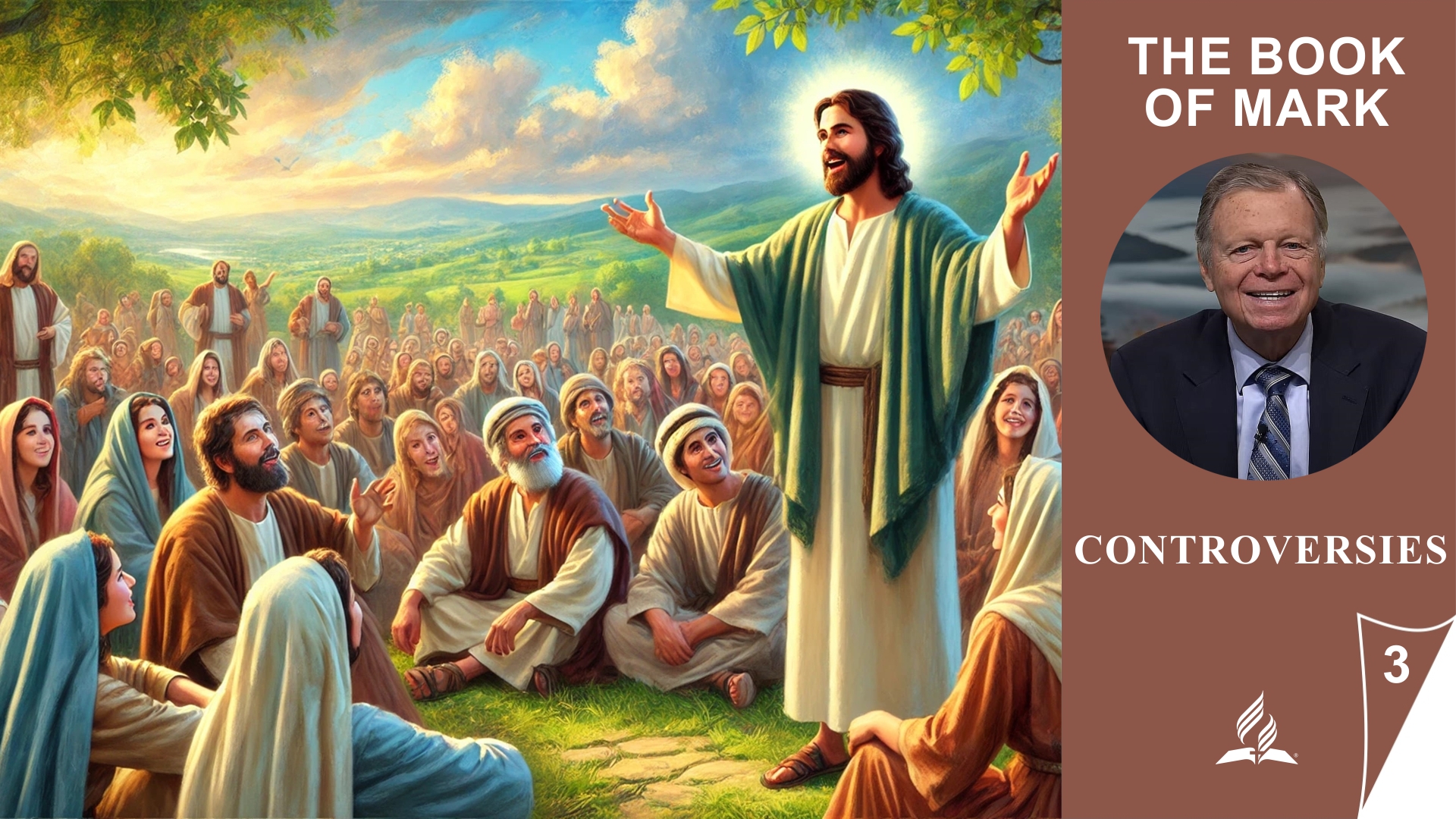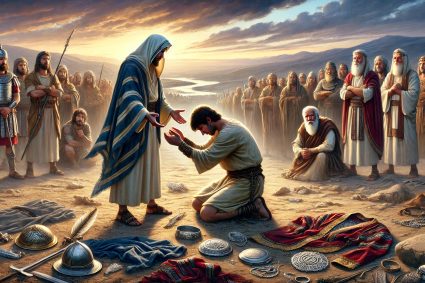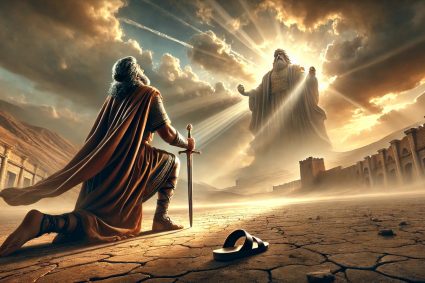
Series THE BOOK OF MARK with Pastor Mark Finley |
Lesson 3.Controversies |
The Controversies Surrounding Jesus’ Ministry
Lesson 3 examines the controversies that surrounded Jesus during his ministry. This lesson highlights how Jesus repeatedly clashed with the religious leaders of his time because he challenged their traditional views. Examples include healing on the Sabbath, the calling of Levi, and discussions about fasting. Each of these stories reveals Jesus’ deeper message of mercy and justice. These controversies make it clear that Jesus came to fulfill the true intent of God’s laws and show people a new way.
Memory Text: Mark 2:27.28 – “And He said to them, ‘The Sabbath was made for man, and not man for the Sabbath. Therefore the Son of Man is also Lord of the Sabbath’.”
Content:
3.1 Healing a Paralytic
Faith, Healing, and the Power of Forgiveness
The paralytic sought healing from Jesus and was brought to him by four friends full of faith. This faith was evident in their determined actions to open the roof and lower their friend to Jesus. Jesus recognized their faith and first forgave the paralytic’s sins, which outraged the religious leaders as they considered it blasphemy. To affirm his divine authority, Jesus then physically healed the paralytic, enabling him to stand and walk. This demonstrated that Jesus had the power to forgive sins and provide physical healing, challenging the narrow religious views of the leaders. The narrative illustrates how genuine faith and God’s work manifest in visible actions.
3.2 Calling Levi and the Question of Fasting
The Calling of Levi and Jesus’ Teaching on Fasting
Levi, the son of Alphaeus, was a despised tax collector known for collaborating with the Romans and collecting excessive taxes. This made him a sinner in the eyes of the Jewish population. The scribes and Pharisees were shocked and outraged when Jesus called Levi to follow him and ate with him. Jesus defended his actions by explaining that he came to heal the sick and call sinners to repentance, not to serve the righteous. In response to the question about fasting, Jesus compared his presence to a wedding celebration where joy and feasting are appropriate. This highlighted the difference between his new teaching and the old traditions of the religious leaders.
3.3 The Lord of the Sabbath
Jesus and the True Meaning of the Sabbath
The Pharisees accused the disciples of breaking the Sabbath by picking grains. Jesus responded by referencing the story of David eating the consecrated bread to satisfy his men’s hunger. He argued that human well-being takes precedence over religious regulations. Jesus emphasized that the Sabbath was made for man, not man for the Sabbath. By declaring himself the Lord of the Sabbath, he asserted his authority over Sabbath laws. This was further demonstrated when he healed a man on the Sabbath, prioritizing human welfare over traditional rules.
3.4 Sandwich Story, Part 1
Jesus’ Relatives and the Accusation of the Scribes
In Mark 3:20-25, Mark intertwines two stories into a “sandwich narrative.” The outer frame involves Jesus’ relatives who think he has lost his mind and intend to take him back. The inserted central story describes the scribes accusing Jesus of being in league with the devil. Jesus refuted this accusation by explaining that a divided kingdom cannot stand and it makes no sense for Satan to oppose himself. He illustrated his power over Satan by describing himself as the one who binds the strong man and plunders his house to free his captives. This structure shows how both Jesus’ family and the religious leaders misunderstood his true identity and mission.
3.5 Sandwich Story, Part 2
Jesus’ Family and the Misunderstandings of His Mission
Jesus’ family thought he was “out of his mind” because he was so busy that he didn’t even have time to eat. This accusation of mental instability arose from their concern that Jesus posed a threat to his own safety. This parallels the central story where the scribes accuse Jesus of being in league with the devil. Both groups—his family and the scribes—misunderstood his mission. Jesus used the opportunity to explain that his true family consists of those who do God’s will, redefining the concept of family.
3.6 Summary
Jesus’ Conflicts with the Religious Leaders
Lesson 3 explores the various controversies Jesus faced during his ministry. These conflicts show how Jesus often stood in opposition to the religious leaders and traditional norms of his time. The lesson covers events such as healing on the Sabbath, the calling of Levi, discussions about fasting, and accusations that Jesus acted through the power of the devil. In each of these situations, Jesus demonstrated his authority and offered a new perspective on Jewish laws and traditions. He emphasized that mercy, justice, and God’s will take precedence over rigid rituals and traditions. These controversies highlight the radical nature of Jesus’ message and his challenge to the established religious structures.
(Visited 57 times, 1 visits today)




















